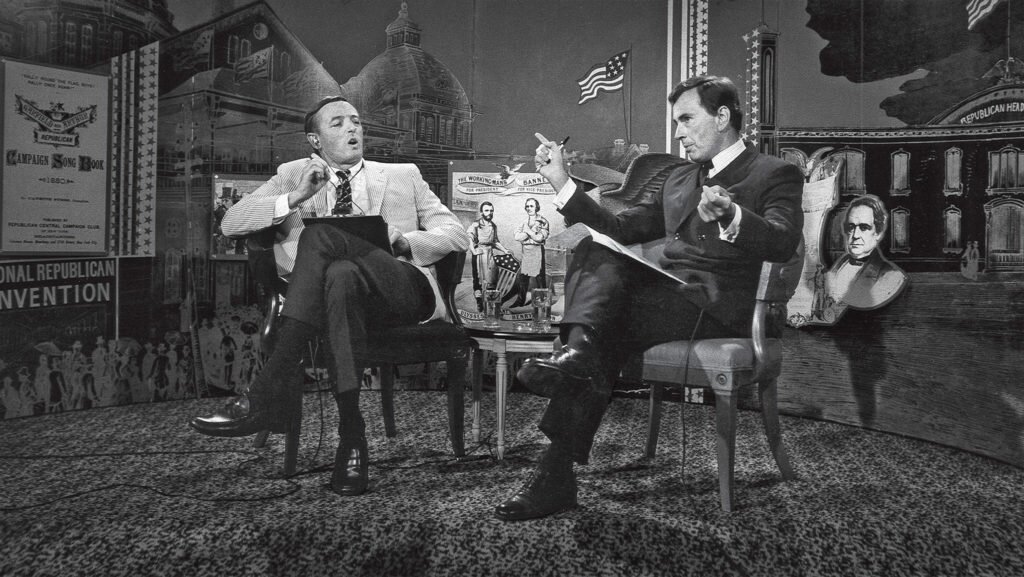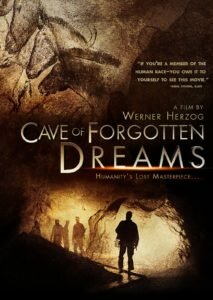 Argh I’m just awful at keeping up with this. These are things I remember from 2018 so far. Maybe I’ll be better in the summer about making a note here and there.
Argh I’m just awful at keeping up with this. These are things I remember from 2018 so far. Maybe I’ll be better in the summer about making a note here and there.
Music
- Ctrl, SZA
- Until the Hunter, Hope Sandoval
- Alone, Mall Grab
- Elder Island, Elder Island
- Con todo el mundo, Khruangbin
- Freedom, Amen Dunes
- Mind Out Wandering, Astronauts, etc.
- Pop 2, Charli XCX
- Tell Me How You Really Feel, Courtney Barnett
- Halcyon Digest, Deerhunter
- Scary Hours, Drake
- Places and Spaces, Donald Byrd
- Gabor Szabo
- Lord Echo
- Czarface Meets Metalface, MF Doom
- War & Leisure, Miguel
- SR3MM, Rae Sremmurd
- These Falling Arms, The Sea & Cake
- Treehouse, Sofi Tukker
- Exotic Worlds and Masterful Treasures, Stimulator Jones
- Sugar at the Gate, TOPS
- In a Poem Unlimited, U.S. Girls
- Big Fish Theory, Vince Staples
- William Onyeabor
- Provider, Frank Ocean
Required reading
- Bluets, Maggie Nelson
- Pale Fire, V. Nabokov – Students always love this
- Olio, Tyehimba Jess – Most impressive new poetry book in years
- Flaubert’s Parrot, Julian Barnes
- Invisible Cities, Italo Calvino – Students always love this
- If Not, Winter: Fragments of Sappho, Anne Carson (and Sappho sort of)
- Meadowlands, Louise Gluck
- The Picture of Dorian Gray, Oscar Wilde
- Wide Sargasso Sea, Jean Rhys – So magically good; her handling of time and tone is amazing
- On Being Blue, William Gass – Did not remember the fundamental sexism in this; was embarrassed to have assigned it to students
Non-required reading
- L’Amour Fou, Rosalind Kraus – Finally thought to buy myself a copy of this much beloved work on surrealist photography
- The Line of Beauty, Alan Hollinghurst – Very smart but I don’t love it like Wendy does
- Meditations, Marcus Aurelius – A little bit every workday instead of alazopram
- Speak, Memory, V. Nabokov – Sometimes the pleasure VN takes in his own virtuosity makes me roll my eyes but this is just incredible in every way as a memoir, a history of 20c, and a string of blue ribbon sentences
Movies
- Man of the West, Anthony Mann. I love how Mann does violence. There are no clean punches or shots, it’s all awkwardness and it goes on too long or not long enough to effect any catharsis. Grueling. Lee J. Cobb, Julie London, Gary Cooper. Movie Night! With Scott and Shrode.
- Darkest Hour, Joe Wright. Movie Night! With Scott and Shrode. Watched and forgotten.
- Call Me By Your Name, Luca Guadagnino. I guess if it’s sufficiently continental it’s OK that it’s predatory pedophilia?
- Winchester ’73, Anthony Mann – The western where the rifle is the star
- Stagecoach, John Ford – Everything’s going to be all right as everyone knows his/her place
- The Gleaners and I, Agnes Varda – Still the greatest
- Faces/Places, Agnes Varda – Also good but here as opposed to the Gleaners it feels a little bit like the openness to chance is slightly pre-determined? I like the part when they go to Godard’s house and he’s such an asshole
- North by Northwest, Hitchcock – Movie night! With Scott and Shrode. For some reason we drank a lot of ouzo.
- The Florida Project, Sean Baker. – Baker wants to get into some serious shit here regarding American poverty and hopelessness, but he also wants to make a kandy-kolored adorable movie about hope and the irrepressibility of the imaginative lives of children, and he can’t really have it both ways. If it ended in tears and agony instead of E. T. transcendence I would respect it more. Still this is worth seeing and I’m glad it got made.
- Seeing Allred, Sophie Sartain, Roberta Grossman. This is a Neflix documentary about Gloria Allred and she is a badass.
- Wind River, Taylor Sheridan. I’m sorry, this is bullshit. The movie is well made and earnest in its desire to condemn racism, government ineptitude, and corporate malfeasance but why why why must the lady FBI agent be incompetent, the Native Americans noble but hapless, and the only person capable of setting wrongs right a white guy? I fear I know the answer to that: If the Jeremy Renner character were played by a Native American actor, the movie would never have been made, because no one’s going to stomach watching a Native American hero coolly pick off the white bad guys. Ugh.
TV
- Big Little Lies (HBO)
- Silicon Valley (HBO)
- Babylon Berlin (Netflix)
- The Crown (Netflix)
- Narcos (Netflix)
- The Same Sky (Netflix)
- Nobel (Netflix)
- The Tunnel (Amazon)
- Atlanta (FX)
- Bosch (Amazon)
- The Expanse (Amazon)
- Prime Suspect: Tennison (Amazon)
I watch a shocking amount of television these days but I don’t know how much I’m really watching it since I’m usually doing email at the same time. Any of these will provide a reasonable amount of ambient narrative if you’re in need of that kind of thing, but Atlanta‘s the only show there that’s actually worth thinking about.
 Once school lets out, I start consuming culture faster than I can respond to it, so I need to quickly catch up with notes on a few books and movies.
Once school lets out, I start consuming culture faster than I can respond to it, so I need to quickly catch up with notes on a few books and movies. Being sick loosens the customary strictures of my TV ethos. Normally, oppressed by my needs to maximize efficiency and minimize shame, I mostly try to watch things I haven’t seen before and things that aren’t total garbage. But six days on the sofa with the flu lends license to revisit old things and wallow in crap.
Being sick loosens the customary strictures of my TV ethos. Normally, oppressed by my needs to maximize efficiency and minimize shame, I mostly try to watch things I haven’t seen before and things that aren’t total garbage. But six days on the sofa with the flu lends license to revisit old things and wallow in crap. Herzog, in his mid-70s, continues to make excellent new work at an absurd pace. These two are ostensibly documentaries about volcanoes and the internet, respectively, but they work more like essays or poems which begin with the idea of something (e.g., volcanoes, the internet) and then spiral out associations from there. Into the Inferno has talking head scientists explaining how magma works and all that, but Herzog is perfectly happy, when visiting a volcano in North Korea, to spend a good chunk of time on North Korean politics and culture. So you’re watching along, enjoying the insights, and suddenly you ask yourself, wait, why am I learning about North Korean history in the middle of a volcano documentary? And then you’re like, whoa, hold on, is there some metaphor at work here? And by right about then, Herzog’s back to talking about magma, and the moment passes. Then all of a sudden he’s talking about cargo cults, and you’re like, wait a minute . . .
Herzog, in his mid-70s, continues to make excellent new work at an absurd pace. These two are ostensibly documentaries about volcanoes and the internet, respectively, but they work more like essays or poems which begin with the idea of something (e.g., volcanoes, the internet) and then spiral out associations from there. Into the Inferno has talking head scientists explaining how magma works and all that, but Herzog is perfectly happy, when visiting a volcano in North Korea, to spend a good chunk of time on North Korean politics and culture. So you’re watching along, enjoying the insights, and suddenly you ask yourself, wait, why am I learning about North Korean history in the middle of a volcano documentary? And then you’re like, whoa, hold on, is there some metaphor at work here? And by right about then, Herzog’s back to talking about magma, and the moment passes. Then all of a sudden he’s talking about cargo cults, and you’re like, wait a minute . . .
 ABC News, lagging in ratings, needed something splashy to draw in viewers, so they hired liberal Gore Vidal and conservative William F. Buckley, Jr. to debate on camera during the 1968 Democratic and Republican national conventions, knowing full well that these two masters of repartee would provide good entertainment. And entertain they did, as this excellently made documentary shows. One potential reaction to this story is to say, “Back then there were real intellectuals on TV, debating the issues, how sad that these days all we have is shallow demagoguery on the ‘real’ news networks, and the only serious journalists on television are, ironically, comedians (John Oliver, Samantha Bee, Larry Wilmore, Jon Stewart, etc.)” That’s not my take. Watch Vidal and Buckley “debate,” and you quickly realize that their discourse was all about contempt, point-scoring, sophistry, and adamant refusal to acknowledge the very humanity of the other. These guys don’t represent some prelapsarian alternative to our contemporary crisis of journalism, where noise masquerades as signal; they represent its beginnings. Super worth watching, especially between now and November 8.
ABC News, lagging in ratings, needed something splashy to draw in viewers, so they hired liberal Gore Vidal and conservative William F. Buckley, Jr. to debate on camera during the 1968 Democratic and Republican national conventions, knowing full well that these two masters of repartee would provide good entertainment. And entertain they did, as this excellently made documentary shows. One potential reaction to this story is to say, “Back then there were real intellectuals on TV, debating the issues, how sad that these days all we have is shallow demagoguery on the ‘real’ news networks, and the only serious journalists on television are, ironically, comedians (John Oliver, Samantha Bee, Larry Wilmore, Jon Stewart, etc.)” That’s not my take. Watch Vidal and Buckley “debate,” and you quickly realize that their discourse was all about contempt, point-scoring, sophistry, and adamant refusal to acknowledge the very humanity of the other. These guys don’t represent some prelapsarian alternative to our contemporary crisis of journalism, where noise masquerades as signal; they represent its beginnings. Super worth watching, especially between now and November 8. As is the case with Herzog’s other late-period documentaries, one’s interest is divided between information and atmosphere; you watch this a little bit because you’re interested in the astounding paintings inside the Chauvet Cave, and a lot because you want to hear That Voice talking about steam and the abyss of time and mutant alligators reclaiming the earth. I am a sucker even for the interminably slow tracking shots scored with lugubrious arias. If you ever start to feel like your individual existence matters in some way, watch this for a swift corrective.
As is the case with Herzog’s other late-period documentaries, one’s interest is divided between information and atmosphere; you watch this a little bit because you’re interested in the astounding paintings inside the Chauvet Cave, and a lot because you want to hear That Voice talking about steam and the abyss of time and mutant alligators reclaiming the earth. I am a sucker even for the interminably slow tracking shots scored with lugubrious arias. If you ever start to feel like your individual existence matters in some way, watch this for a swift corrective. Sweet and satisfying documentary about the underground market in western movies on VHS tapes during the last throes of the Ceaușescu regime in Romania, when state censorship and secret police surveillance were at their Orwellian zenith. Irina Margareta Nistor is our unlikely heroine. A mild-mannered translator of state television programs by day, by night she dubbed into Romanian every triumph and every dog to come out of Hollywood in the 1980’s, over 3000 banned films all told. Everyone in Romania knew her voice, but none her face. Great story.
Sweet and satisfying documentary about the underground market in western movies on VHS tapes during the last throes of the Ceaușescu regime in Romania, when state censorship and secret police surveillance were at their Orwellian zenith. Irina Margareta Nistor is our unlikely heroine. A mild-mannered translator of state television programs by day, by night she dubbed into Romanian every triumph and every dog to come out of Hollywood in the 1980’s, over 3000 banned films all told. Everyone in Romania knew her voice, but none her face. Great story.
